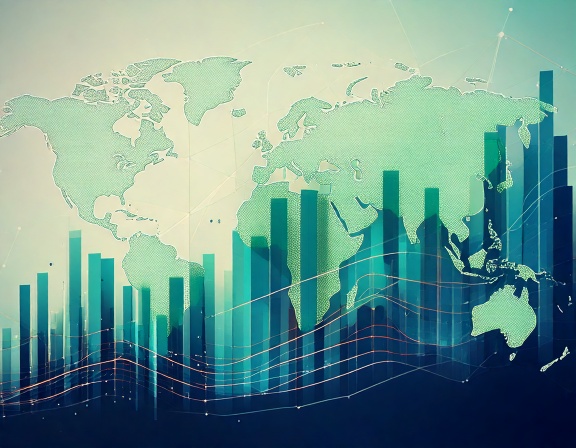Deal Drivers: APAC HY 2024
APAC lags rest of world as M&A value sinks
For all its economic dynamism and potential, recent M&A data in APAC makes for sobering reading. Transaction volume fell by 11.5% year-on-year, to 4,564 deal announcements. The decline in total value was even more pronounced, dropping by 24.6% to US$288bn from US$381bn in H1 2023. There was a near total absence of megadeals, with only three recorded through the first six months of this year.
This slowdown comes in part due to China falling out of favor with international investors. The MSCI China Index has underperformed compared to other major country indices, affecting corporate valuations and making it more difficult to achieve agreeable deal terms. This has come with a continued downward dealmaking trend in the country that began in late 2021 and has yet to show signs of reaching a bottom. Indeed, in Q2 2024, deal volume in China hit a low not seen since 2007.
Sector breakdown
The telecoms, media & technology (TMT), I&C, and business services sectors collectively accounted for 54% of all APAC M&A in H1. TMT led with 1,287 deal announcements, representing a 10.5% year-on-year decline. I&C followed with 717 transactions, showing a more significant drop of 21% compared to H1 2023. Business services remained relatively stable with 483 deals, a more modest 6.9% decrease from the same period last year.
In deal value terms, the top three sectors showed some divergence from the volume rankings. TMT maintained its lead with US$50.6bn in deal value, though this represented a 21.4% decrease from H1 2023. I&C saw a dramatic 65.6% drop to US$38bn as buyers gravitated to the mid-market and away from big-ticket deals. Surprisingly, real estate emerged as the third largest sector by value at US$36.1bn thanks to a 30.9% year-on-year surge, owing in large part to two of APAC’s three biggest deals involving property-related assets.
Domestic consumption
In March, a consortium led by PAG Asia Capital, including Trustar Capital, Ares Management, the Abu Dhabi Investment Authority, and Mubadala Investment acquired a 60% stake in China’s Zhuhai Wanda Commercial Management Group, which owns an extensive shopping mall portfolio. While the consumer market in China might be facing immediate difficulties as household spending growth stalls, the investor group is banking on the country’s long-term pivot towards domestic demand driving its economy.
The following month in India, a major share realignment within the Godrej family was completed. This involved key family members consolidating their control over both Godrej Consumer Products and Godrej Properties, representing deals worth US$7.8bn and US$5.1bn, respectively. Both companies are part of the larger Godrej Group, one of India’s oldest and most diversified conglomerates.
Despite a challenging H1, deal activity in APAC is poised for a rebound over the next six to 12 months. Stabilizing economic conditions, expertise in strategically important sectors, and renewed investor confidence could stoke a quick M&A recovery.
Published in association with Datasite, Deal Drivers APAC provides an in-depth review of M&A activity in the first half of 2024, as well as an outlook for the year ahead.
The report is also available on datasite.com.












